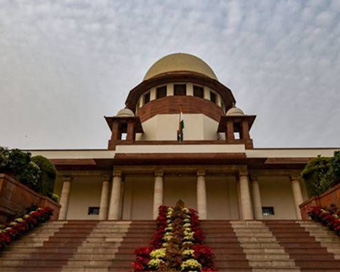Gallery
 PM Modi visit USA
PM Modi visit USA Only the mirror in my washroom and phone gallery see the crazy me : Sara Khan
Only the mirror in my washroom and phone gallery see the crazy me : Sara Khan Karnataka rain fury: Photos of flooded streets, uprooted trees
Karnataka rain fury: Photos of flooded streets, uprooted trees Cannes 2022: Deepika Padukone stuns at the French Riviera in Sabyasachi outfit
Cannes 2022: Deepika Padukone stuns at the French Riviera in Sabyasachi outfit Ranbir Kapoor And Alia Bhatt's Wedding Pics - Sealed With A Kiss
Ranbir Kapoor And Alia Bhatt's Wedding Pics - Sealed With A Kiss Oscars 2022: Every Academy Award Winner
Oscars 2022: Every Academy Award Winner Shane Warne (1969-2022): Australian cricket legend's life in pictures
Shane Warne (1969-2022): Australian cricket legend's life in pictures Photos: What Russia's invasion of Ukraine looks like on the ground
Photos: What Russia's invasion of Ukraine looks like on the ground Lata Mangeshkar (1929-2022): A pictorial tribute to the 'Nightingale of India'
Lata Mangeshkar (1929-2022): A pictorial tribute to the 'Nightingale of India' PM Modi unveils 216-feet tall Statue of Equality in Hyderabad (PHOTOS)
PM Modi unveils 216-feet tall Statue of Equality in Hyderabad (PHOTOS)The Badminton Association of India (BAI) has announced a 14-member-strong India squad for
- Men’s Sr Hockey Nationals to be played in division-based format from April 4
- Mensik denies Djokovic 100th title in Miami final
- KIPG: Son of a vegetable vendor, Bihar’s Jhandu Kumar eyes Worlds, 2028 Paralympics
- Hardik Singh credits hard work and team unity for receiving HI Midfielder of the Year award
- Djokovic, Alcaraz land in same half of Miami draw
SC: Emergency led to fertile conditions for destruction of liberty Last Updated : 02 Oct 2020 04:54:12 PM IST 
SC The Supreme Court said the experiences gained from the Emergency era are sobering lessons, which should warn against endowing a statute, susceptible of grave misuse.
The observation by the top court was made on the contentions of the Gujarat government that the pandemic has resulted in an internal disturbance. This was used to justify its notification to extract additional hours from workers without paying wages for the overtime.The apex court has quashed this notification.A bench comprising Justice D. Y. Chandrachud and comprising Justices Indu Malhotra and K. M. Joseph cited the emergency declared in 1962and 1971, when India fought wars with China and Pakistan; and the Emergency in 1975, where the government declared that a "grave emergency exists whereby the security of India is threatened by 'internal disturbance'."The forty fourth amendment to the Constitution sought to limit recourse to emergency powers under Article 352 to prevent their abuse.The bench said a proclamation of emergency now cannot be issued on a mere internal disturbance and must reach the threshold of an armed rebellion threatening the security of India.Citing the bitter experience of the Emergency, the bench said the experiences gained from the excesses of the emergency, experiences about the violation of human rights, is in fact experiential learning, which establishes amalgam of uncontrolled power and unbridled discretion provide fertile conditions for the destruction of liberty."The sobering lessons learnt from our not-too-distant history should warn us against endowing a statute with similar terms of a content which is susceptible of grave misuse," said the bench.The top court said even if it were to accept the government's argument that the pandemic has resulted in an internal disturbance, yet the economic slowdown created by the Covid-19 pandemic does not qualify as an internal disturbance threatening the security of the state.The bench noted that the pandemic has put a severe burden on existing, particularly public health, infrastructure and has led to a sharp decline in economic activities. "However, it has not affected the security of India, or of a part of its territory in a manner that disturbs the peace and integrity of the country. The economic hardships caused by Covid-19 certainly pose unprecedented challenges to governance. However, such challenges are to be resolved by the State Governments within the domain of their functioning under the law, in coordination with the Central Government," said the top court.The Gujarat government had argued that the Covid-19 pandemic was leading to financial chaos and the situation was on "the brink of internal disturbance".The government urged that the economic slowdown caused by the pandemic constitutes a public emergency, warranting the need to issue the impugned notifications curtailing the applicability of certain provisions of the Factories Act.The notifications, issued first in April and then in July, exempted the factories from some of the requirements under the Factories Act, which led to an increase in working hours from 9 to 12 and weekly hours from 48 to 72 without paying double the wages for overtime.IANS New Delhi For Latest Updates Please-
Join us on
Follow us on








172.31.16.186







